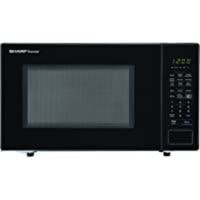Jenn air microwave troubleshooting. It’s important for a business owner to always be prepared.
The Jenn-Air microwave from Maytag Corporation might not have the ability to heat food up as quickly as other microwaves on the market, and this could become a problem depending on how long you have been using it.
If your microwave has taken longer than usual to heat things up in the past few days or weeks, this may indicate that something with your unit is faulty and needs to be repaired or replaced by an authorized technician.
Jenn air microwave troubleshooting
It’s not uncommon for microwave owners to have problems with their appliances. Here are some handy tips on how to resolve common issues with the Jenn-Air brand.
Jenn Air Microwave does not work
The line fuse is designed to protect the microwave circuitry by preventing plugging in of the appliance into its socket when there is something wrong with it.
There are a couple of different ways that this could happen depending on what nature of the fault might be and let’s say it is related to overheating, for example, then one might end up with the fuse blowing when plugging in the microwave.
To determine whether the thermal fuse has blown, use a multimeter to check for continuity. Replace the fuse if it no longer has continuity. Thermal fuses cannot be reset; they must be replaced if they are blown.
If the microwave overheats, the Thermo protector trips, cutting off the microwave’s power.
Using a multimeter, check for continuity to determine if the Thermo protector is defective. Replace the Thermo protector if it does not have continuity and cannot be reset.
Microwave is not heating
Microwave light bulb Problem
It is possible that the light bulb itself is burned out. This can be fixed easily. To replace the burnt-out bulb, simply unscrew the base of the fixture.
Next, ensure that the light socket is screwed in tightly. If it’s loose, tighten it up and see if everything works again. Use a multimeter to test for continuity between the two prongs of each connection if this isn’t the problem.
Microwave buttons aren’t working
As a first troubleshooting step, try pressing the buttons on the touchpad to see if any are misbehaving. If some of the buttons respond correctly while others don’t, replace the touchpad and control panel as you cannot fix a broken touchpad without replacing it with a new one.
The microwave is arcing or sparking
The waveguide cover might be damaged and shorted out. If the problem persists, try removing the cover. The cover should be replaced if it has been burned or will not stay in place.
The interior of the microwave oven might be damaged. Check inside the microwave for discoloration, damage, or chipping where metal is exposed. I
f there are any damaged spots, touch them up with microwave oven paint and make any repairs necessary to restore the microwave oven to its original appearance.
Jenn Air Microwave is noisy
The microwave uses high-frequency AC electricity to generate the microwave frequencies that cook your foods. Under normal circumstances, the microwave hums and crackles softly but when one of its circuits malfunctions, it becomes louder.
Loud sounds are a sign of an electrical short or something wrong with the transformer in your microwave – either way, they need replacing promptly before they can cause more permanent damage because if you’re unlucky, you’ll probably have to replace it soon anyway.
The loud buzzing may even cause strange smells to emanate from your oven! Make sure that you check for fuses on the circuit board which might have blown or a circuit breaker has tripped in your home’s fuse box and needs resetting before you get too carried away.
Any visible signs of overheating will require the appliance to be extinguished immediately before attempting repairs elsewhere such as faulty wiring insulation that is giving off smoke.
The microwave door will not open
The door hook engages with the door latch to hold the door shut during operation.
Since our plastic door hook is susceptible to break due to regular wear and tear, if it breaks, it won’t release properly because it won’t keep the latch engaged. If our plastic hook is broken, replace it.
Related Guides
